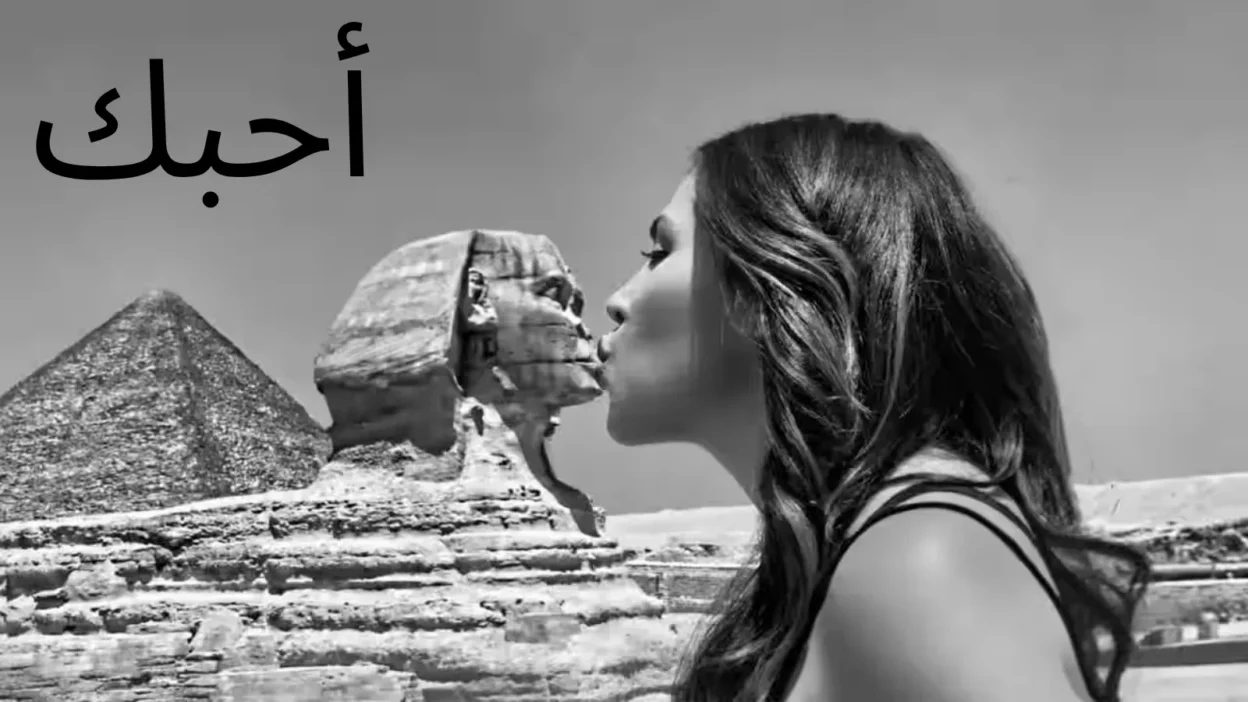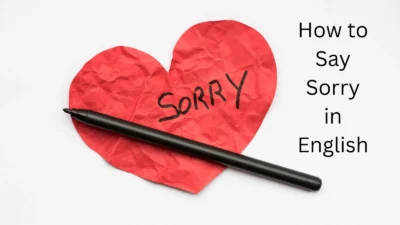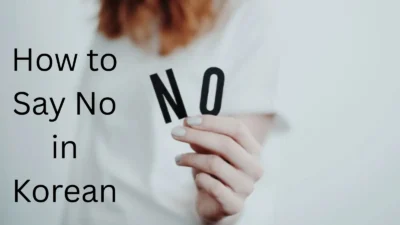If you’re curious about how to say I love you in Arabic, you’re not alone—it’s one of the most heartfelt phrases people want to learn in a new language. In Arabic, expressing love can vary slightly depending on the region and whether you’re speaking to a male or female.
The most common way to say it is “أحبك” (uhibbuka) to a male and “أحبكِ” (uhibbuki) to a female.
Understanding how to say I love you in Arabic not only helps you connect emotionally with native speakers but also gives you a glimpse into the culture’s deep appreciation for love, poetry, and emotion.
Arabic is a rich and expressive language, and learning romantic phrases brings you closer to its beauty. Whether it’s for a partner, family member, or close friend, saying “I love you” in Arabic carries real emotional depth.
Say I Love you in Arabic
Here are 15 different ways to say I love you in Arabic, with dialogue examples and background on their meaning or cultural context.
15 Ways to Say I Love You in Arabic (With Meaning & When to Use)
| # | Arabic Phrase | Meaning (English) | Use / When to Say It |
|---|---|---|---|
| 1 | أحبك (Uhibbak/Uhibbik) | I love you | Standard, most common |
| 2 | بحبك (Bahebak/Bahebik) | I love you | Casual / everyday speech |
| 3 | أعشقك (A‘shaqak/A‘shaqik) | I adore you | Very romantic / deep love |
| 4 | أنا أحبك (Ana uhibbuk) | I love you (emphasized) | Expressing strong feeling |
| 5 | أحبك كثيراً (Uhibbuk katheeran) | I love you so much | Intense affection |
| 6 | اشتقت لك (Ishtaqtu lak) | I miss you | When you miss someone |
| 7 | أنتَ قلبي / أنتِ قلبي (Anta qalbi / Anti qalbi) | You are my heart | Sweet, emotional |
| 8 | روحي (Rouhi) | My soul | Very loving nickname |
| 9 | حياتي (Hayati) | My life | Used by couples |
| 10 | قلبي (Qalbi) | My heart | Romantic nickname |
| 11 | عمري (Omri) | My lifetime / my love | Deep affection |
| 12 | أنت حبيبي / حبيبتي (Anta habibi / Anti habibti) | You are my love | Common couple phrase |
| 13 | أنا مخلص لك (Ana mukhlis lak/laki) | I am loyal to you | Serious relationship tone |
| 14 | سأكون معك دائماً (Sa’akoon ma‘ak da’iman) | I will always be with you | Promise / commitment |
| 15 | أحبك إلى الأبد (Uhibbuk ila al-abad) | I love you forever | Long-term, forever love |
1. أحبك (Uḥibbuka – to a male / Uḥibbuki – to a female)
Origin: The standard Modern Standard Arabic (MSA) phrase meaning “I love you.”
Example:
👤 User A: أحبك كثيرًا يا ليلى.
👤 User B: وأنا أيضًا، أحبك من كل قلبي.
Translation:
A: I love you so much, Layla.
B: I love you too, with all my heart.
Use: Formal or poetic. Common in writing, songs, or serious confessions.
2. بحبك (Baḥibbak – to a male / Baḥibbik – to a female)
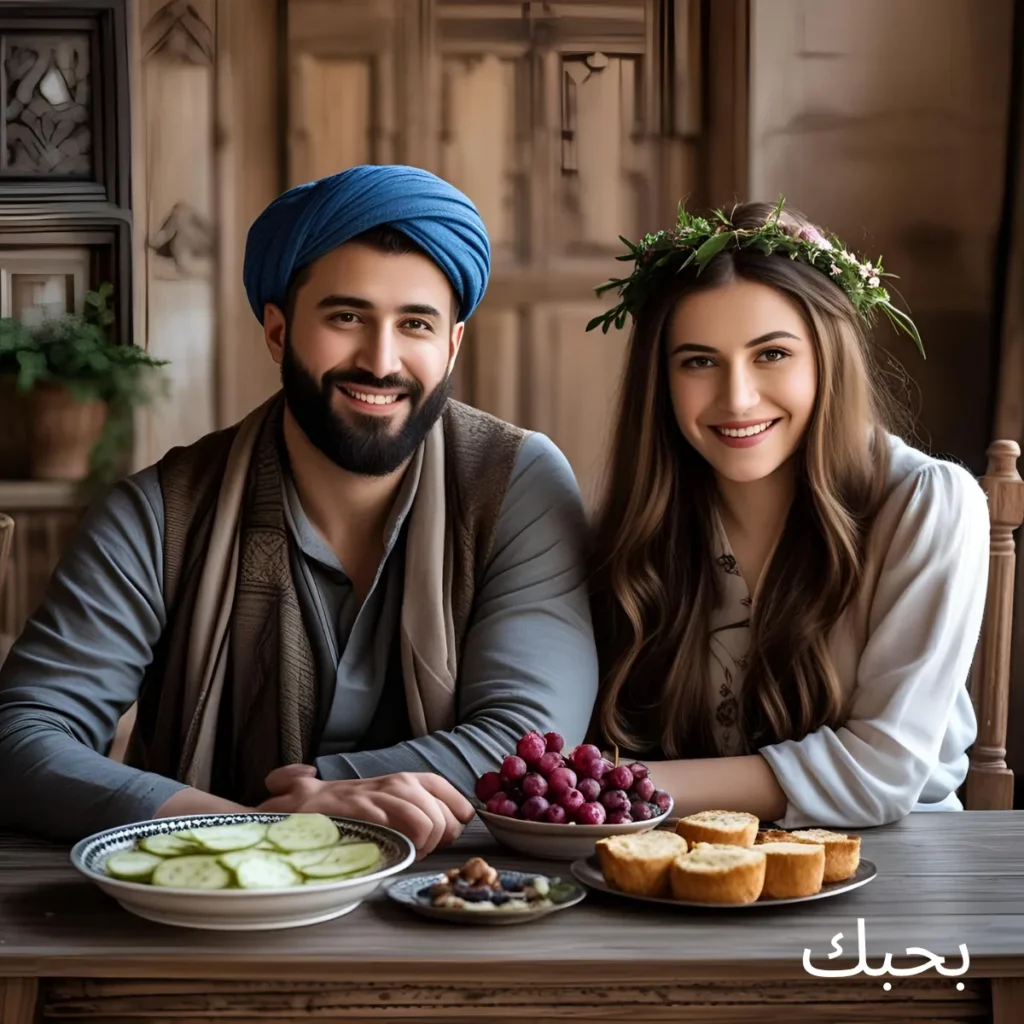
Origin: Colloquial Levantine (Lebanon, Syria, Palestine, Jordan).
Example:
👤 User A: بحبك من زمان، بس ما كنت قادر أحكي.
👤 User B: وأنا كمان، بحبك بجنون!
Translation:
A: I’ve loved you for a long time but couldn’t say it.
B: Me too, I love you like confused!
Use: Romantic and very common in daily conversations in the Levant.
3. أنا مغرم بك (Ana mugh’ram bik/biki)
Origin: A more literary way to say “I am in love with you.”
Example:
👤 User A: هل تعلمين؟ أنا مغرم بك منذ أول لقاء.
👤 User B: هذا أجمل ما سمعته اليوم.
Translation:
A: Do you know? I’ve been in love with you since our first meeting.
B: That’s the most beautiful thing I’ve heard today.
Use: Poetic, literary, or formal expressions of love.
4. أنا بعشقك (Ana baʿshaʾak)
Origin: Egyptian Arabic for “I adore you” (stronger than “I love you”).
Example:
👤 User A: أنا بعشقك من غير سبب.
👤 User B: وأنا بعشقك أكتر.
Translation:
A: I adore you for no reason.
B: And I adore you even more.
Use: Deep romantic feeling; often heard in Egyptian love songs.
5. أموت فيك (Amūt fīk/fīki)

Origin: Gulf Arabic expression, literally “I would die for you.”
Example:
👤 User A: أموت فيك يا حبيبي.
👤 User B: وأنا حياتي كلها لك.
Translation:
A: I love you so much, my love.
B: And my whole life is yours.
Use: Extremely affectionate; common in the Gulf region.
6. بموت فيك (Bamūt fīk)
Origin: Egyptian and Levantine Arabic.
Example:
👤 User A: بموت فيك لما تضحك.
👤 User B: ضحكتي كلها إلك!
Translation:
A: I die for you when you smile.
B: My smile is all yours!
Use: Sweet and romantic; a playful way to show obsession.
7. أنت روحي (Enta rūḥi)
Origin: “You are my soul” – a powerful Arabic phrase of eternal love.
Example:
👤 User A: أنت روحي، وما أقدر أعيش بدونك.
👤 User B: وأنا بدونك مثل الجسد بدون روح.
Translation:
A: You are my soul. I can’t live without you.
B: And I am like a body without a soul without you.
Use: Deep emotional connection, often used in poetry and songs.
8. أنا ولهان فيك (Ana walhān fīk)
Origin: Gulf and Saudi Arabic; means “I’m yearning for you.”
Example:
👤 User A: من جد، أنا ولهان فيك طول الوقت.
👤 User B: ولهان عليك أكتر.
Translation:
A: Honestly, I’m always yearning for you.
B: I’m yearning for you even more.
Use: Deep romantic longing; popular in Gulf poetry and songs.
9. حبيتك (Ḥabbaytak)
Origin: Past tense, “I have loved you” (used in Levantine Arabic).
Example:
👤 User A: حبيتك من أول نظرة.
👤 User B: وأنا قلبي دق من أول لحظة.
Translation:
A: I loved you from the first glance.
B: And my heart skipped from the first moment.
Use: Romantic and reflective; often used in music.
10. قلبي لك (Qalbī lak)
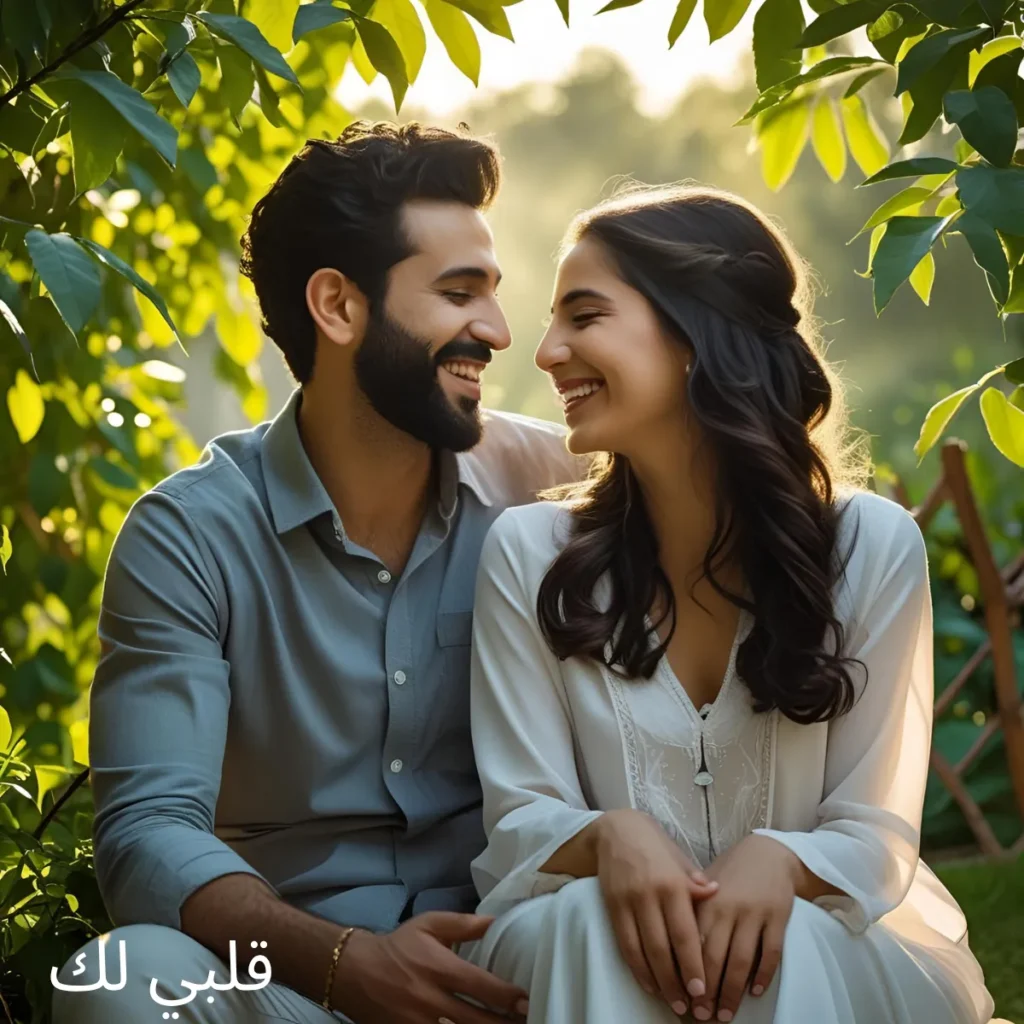
Origin: “My heart is yours” – universal across Arabic dialects.
Example:
👤 User A: مهما صار، قلبي لك.
👤 User B: وأعدك، ما رح أتركك.
Translation:
A: No matter what happens, my heart is yours.
B: I promise, I’ll never leave you.
Use: Symbolic love; ideal for romantic or poetic moments.
11. إنت عمري (Inta ʿUmrī)
Origin: Made famous by Egyptian singer Umm Kulthum; means “You are my life.”
Example:
👤 User A: إنت عمري وأغلى ما أملك.
👤 User B: وأنا بحياتي كلها ملكك.
Translation:
A: You are my life and the most precious thing I have.
B: And my whole life belongs to you.
Use: Deep and dramatic; popular in Arabic songs and romance.
12. أنا متعلق فيك (Ana mʿallaq fīk)
Origin: Levantine Arabic; means “I’m attached to you” emotionally.
Example:
👤 User A: ما بعرف كيف، بس أنا متعلق فيك.
👤 User B: وأنا حاسة بنفس الشي.
Translation:
A: I don’t know how, but I’m attached to you.
B: I feel the same.
Use: Early stage love or emotional closeness.
13. أنا مجنون فيك (Ana majnūn fīk)
Origin: Means “I’mout of control about you.”
Example:
👤 User A: أنا مجنون فيك وما بقدر أبعد.
👤 User B: وأنا مجنونة فيك أكتر.
Translation:
A: I’m out of control about you and can’t stay away.
B: I’m even unbelievable about you.
Use: Intense romantic love or obsession.
14. إنت كل حياتي (Enta kull ḥayātī)
Origin: “You are my whole life” – very popular in Arabic culture.
Example:
👤 User A: إنت كل حياتي، ما بدي غيرك.
👤 User B: وأنا كل أيامي إلك.
Translation:
A: You are my whole life; I want no one else.
B: And all my days belong to you.
Use: Serious long-term love; used for spouses or deep partners.
15. أنت حبيبي / حبيبتي (Enta ḥabībī / ḥabībtī)
Origin: Most common endearment. Means “You are my love.”
Example:
👤 User A: تصبح على خير، يا حبيبي.
👤 User B: وأنت منور قلبي، يا حبيبي.
Translation:
A: Goodnight, my love.
B: And you light up my heart, my love.
Use: Everyday romantic phrase in nearly all Arabic dialects.
FAQs
- What is the most common way to say I love you in Arabic?
The most common phrase is “أحبك” (Uhhibbook). - Does it change based on gender?
Yes.- To a male: أحبك (Uhibbak)
- To a female: أحبكِ (Uhibbik)
- How do I say I love you very much?
Say “أحبك كثيراً” (Uhibbuka katheeran / Uhibbuki katheeran). - How do couples say it casually?
They often say “بحبك” (Bahebak) to a male and “بحبكِ” (Bahebik) to a female. - How do I say I love you too?
Say “وأنا أيضاً أحبك” (Wa ana aydan uhibbuk). - How do I say I love you, my love?
Say “أحبك يا حبيبي” (Uhibbuk ya habibi) to a male,
or “أحبك يا حبيبتي” (Uhibbuk ya habibti) to a female. - How do I say I love you in a romantic deep way?
Say “أعشقك” (A‘shaqak / A‘shaqik) meaning I adore you. - Is Arabic usually formal when saying I love you?
It depends — Modern Standard Arabic is formal, while dialect forms like Bahebak are everyday speech. - How do I respond politely if someone says it to me first?
“شكراً” (Shukran) if you don’t feel the same, or “وأنا أحبك” if you do. - Which countries use these phrases?
All Arab countries, though pronunciation may vary slightly by region.
Conclusion:
Now that you know how to say I love you in Arabic, you can express your feelings more deeply and meaningfully in this beautiful language.
Whether you’re saying “أحبك” (uhibbuka/uhibbuki) to a loved one or learning to connect with Arabic culture, this phrase carries powerful emotion.
Love is a universal language, and learning to say it in Arabic strengthens your communication and cultural connection. Keep practicing, and let your words come from the heart. ❤️

Sophia Mitchell is a passionate content writer known for creating clear, engaging, and informative articles.
She focuses on delivering well-structured content that is easy for readers to understand and trust.
Sophia Mitchell currently contributes quality writing to repliesnest.com, helping readers find accurate answers quickly.
